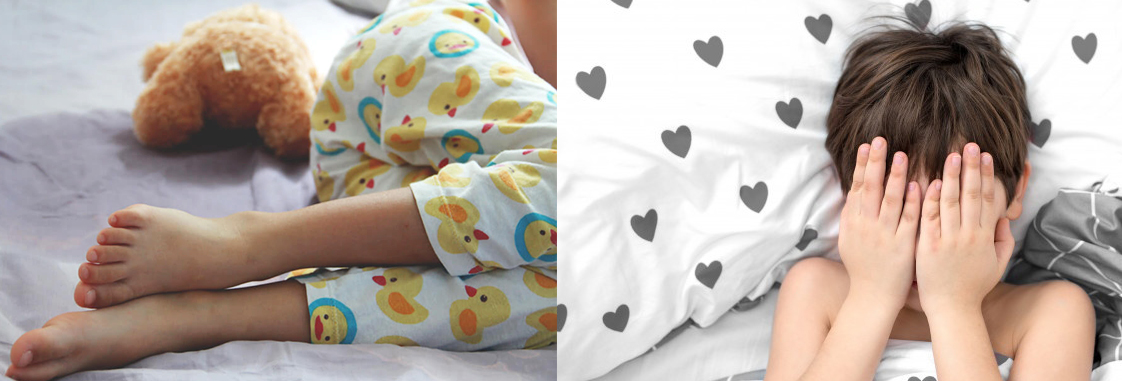Enuresis
What is enuresis?
Enuresis means complete bedwetting in a child 5 years of age and older. A child with nocturnal enuresis wets only during sleep and urinates normally when awake.
Causes
There are several factors that can lead to bed-wetting, including:
- Bedwetting may be hereditary. If there is a family history of parents, siblings, or other close relatives with bedwetting, your child is more likely to inherit the condition.
- Most children with nocturnal enuresis are very heavy sleepers. These children do not wake up when their bladder is full.
- During sleep, a hormone (vasopressin) is released in the body; it reduces urine production. If your child’s body does not yet produce enough vasopressin, he or she may produce more urine than the bladder can hold.
- It takes time for the bladder to mature and stay relaxed while your child sleeps.

Treatment
Your child’s visit with us will include a complete history. We want to understand your child’s daytime urination and voiding habits, as they may contribute to nighttime urinary leakage. Many children who do not control urine leakage regularly during the day will wet at night. Working to change daytime voiding habits can reduce the degree of urinary leakage.
Recommendations for optimizing daytime voiding include:
- Increase the amount of water consumed during the day. Encourage children to drink most of their fluids early in the day.
- Limiting fluids two hours before bedtime.
- Urinating on a routine schedule every two to three hours.
- Double urination or voiding before bedtime. If bedtime is at 9 pm, have your child empty his or her bladder at 8 pm and then at 9 pm.
- Monitor for any signs of constipation or constipation and treat them.
- Reduce consumption of beverages containing ingredients that irritate the bladder: caffeine, carbonation (fizz / bubbles), citrus juices and sports drinks.
If urinary leakage persists after adjusting daytime habits, there are two main options to help control nighttime urinary leakage:
The bedwetting alarm.
This is a form of conditioning therapy to help your child recognize the need to get up to go to the bathroom. Bedwetting alarms consist of a sensor to detect wetness and an alarm to wake your child. The alarm sounds when your child begins to release urine. It works for 60 to 70 percent of children and requires a high level of commitment from the child and family.
Medication
Desmopressin (DDAVP®) concentrates the urine so that your child produces less urine during the night and does not completely fill the bladder. DDAVP® is effective in approximately 50 percent of patients. In case of resistance to therapy, there are options to use other pediatric medications or in combination.

